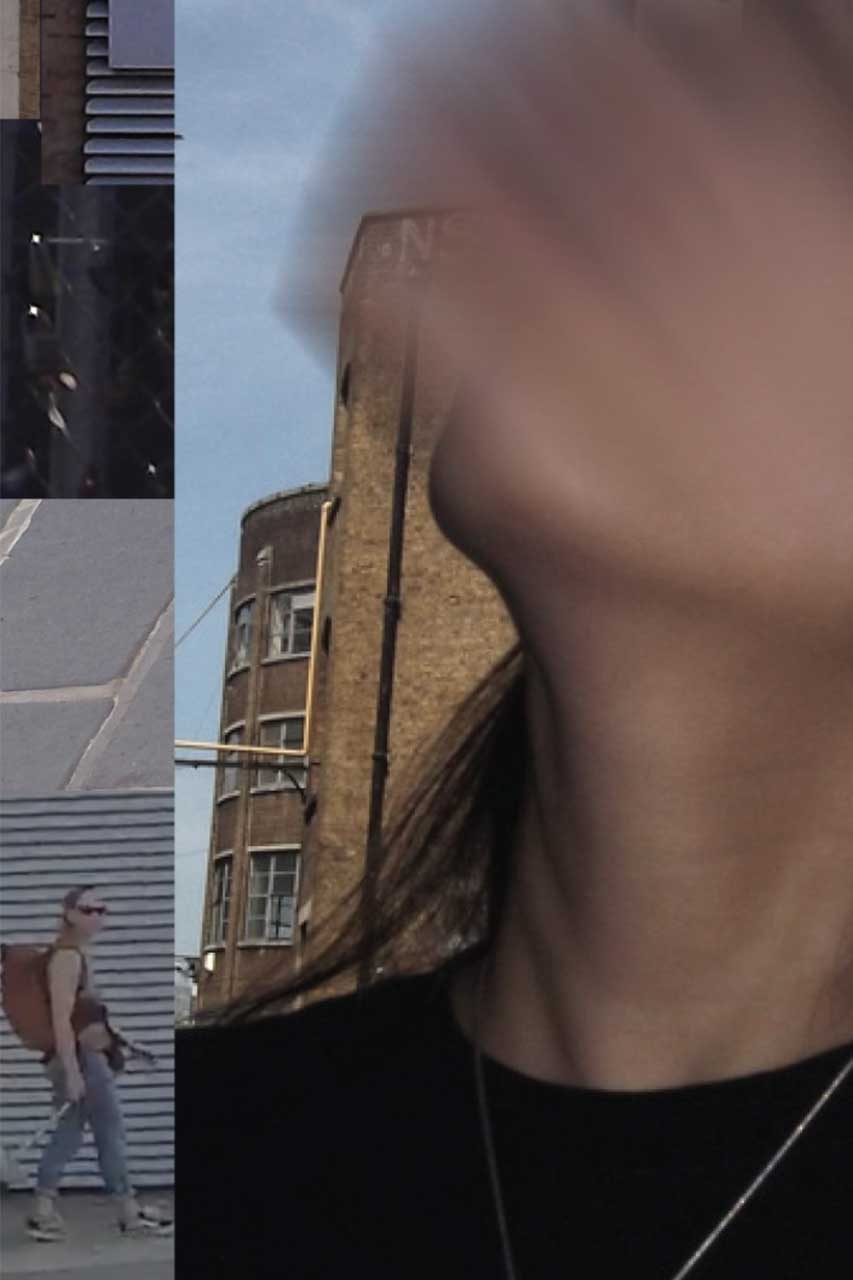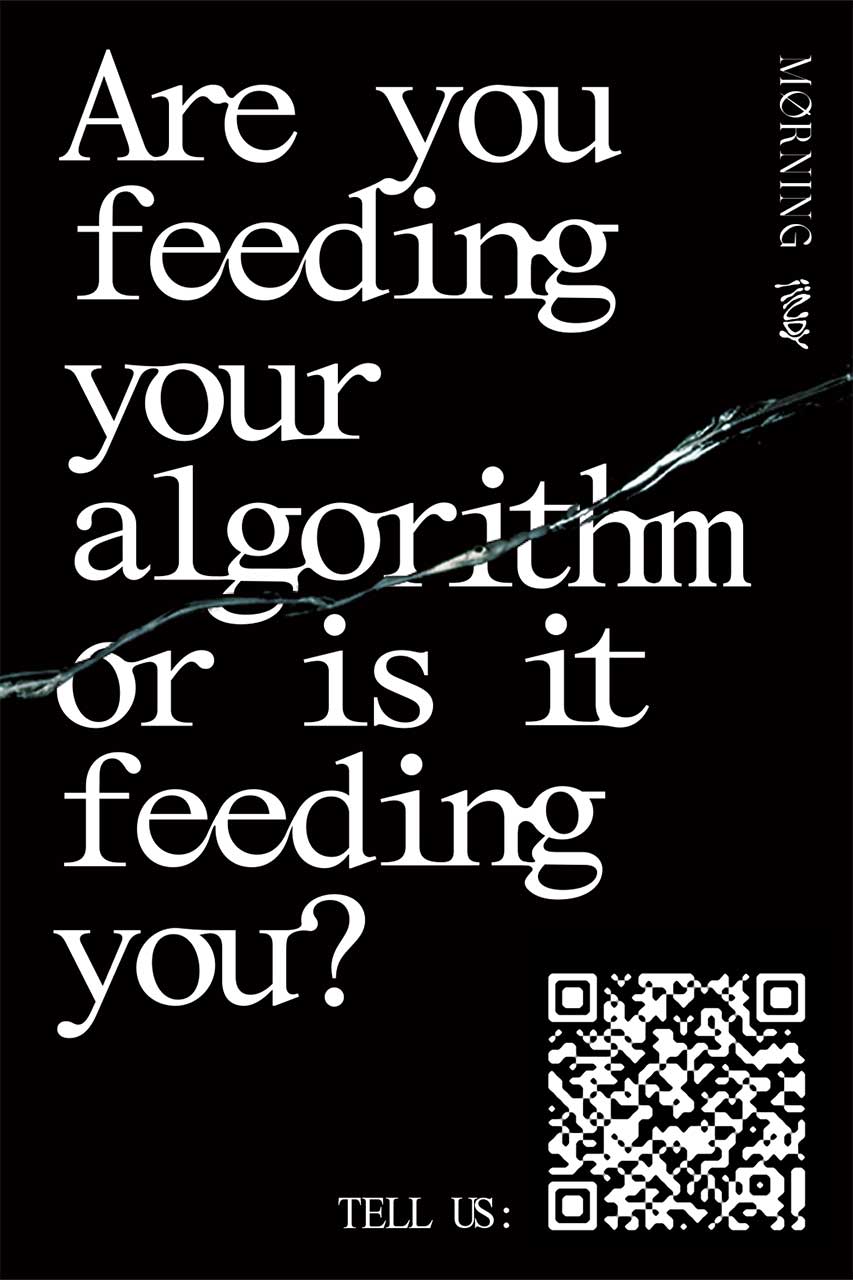Are You Feeding Your Algorithm or Is It Feeding You?
London-based creative research studio MØRNING is calling for a collective pause for thought with its latest initiative, "Burning Questions." Set to the backdrop of constant online clutter, fake news and a lingering feeling of universal dread, the team have set their sights on a new type of public forum. "Burning Questions" prompts viewers to ponder the ramifications of lives lived online and, hopefully, to consider preferred ways of connecting, creating and being.
The project will utilize London's billboards as a medium for critical thought, catching audiences at spontaneous moments of the day, when guttural reactions arise instinctually. For "Burning Questions," the MØRNING crew teamed up with iiNDYVERSE, a chatbot powered company, to grapple and investigate the audience responses to their questions. Amidst the inundation of trend reports and the core-ification of everything, this research format feels succinctly personal and acutely human.
Continue below for an interview with the studio's creative director Rhianna Cohen and before you go checkout Audrey Nuna's digital fashion collaboration with SYKY.

How did you first ideate this research and why did you feel these questions were important to ask?
We're a team of creative strategists and not everyone knows what that means. So, we were thinking about how we can bring strategy out of the shadows. Then, we started thinking about the big questions that are really preying on our minds and that we know the public are also worried about, like: what is "good" internet?, how is AI evolving? and how can we build a better internet for the future? So, we wanted to take it to the public and use a challenging medium to collect insights.
How did the idea for a public format come about?
The pace of culture is moving so fast now, so we are really passionate about staying on that pace but also not discerning what is "good" insight or get into the sweaty armpit of the internet. We're all so much more tuned in and self aware than we've ever been and so ready to share our opinions. There's a light and a shadow side to that. The dark side is that people start repeating each other's opinions and are not so tuned into their own. The light side is that everything feels super democratized. So, we wanted to play both of those sides and see what we got back.
Do you have any inklings on how people will react to the questions?
There's a huge craving for this return to the MySpace and Tumblr era where people made internet friends and might have actually crossed paths in real life and became real life supporters of each other. That's something that I see people craving and talking about a lot. My hunch is that, for most people, a "good" internet is not going to look like this version of Web3.
Web3 is "looming on the horizon." What stage do you think the web is currently in?
I tend to say we're in Web2.5. I think a lot of people feel that that's where we're at. People are very quick to categorize things. We saw it with NTFs and then blockchain and then AI. Conversations quietly calm down over time but in the background [creatives in the space] are still squirreling away and trying to achieve things with this new technology. I think Web3, [once realized], will be something different to what some of us have even imagined.
The word "trend" goes through cycles of clutter and dilution. What terminology do you and the MØRNING team use to communicate your research about the future?
So, one of the things that we've started doing with how we report on trends is to pull out the tensions within them. There's such sweeping broad statements, like, "Gen Z really care about sustainability, above any other cohort," where, in reality, Gen Z are the biggest consumers of retailers like SheIn. There's all of these huge juxtapositions within them so we like to avoid the binaries and poke fun at the tropes. As humans we crave simplicity and the same can be said with naming trends and reports because it's easier to buy into. That just isn't real life. Life is nuanced and rarely neat.

What excites you the most about the future?
Technology. I'm a techno optimist. It can be incredibly freeing, inspiring, creative and collaborative in the right hands. I still have hope for all of the dreams of tech, knowing that new platforms are arising and bringing new views and togetherness. If those conversations stay bubbling up then I think there's hope -- I hope.
What scares you the most about the future?
Technology. I was looking at my nephew the other day, knowing that he has eight hours of screen time a day and so much of his life is consumed through this device. I feel very grateful that I didn't have that experience growing up.
Are you feeding your algorithm? Or is it feeding you?
We both feed each other. I'm feeding my algorithm, my algorithm is feeding me, who comes first? What's the head and the tail? I don't know. I liked what happened around the MET Gala, where people were opting to not see celebrities' content. Sometimes people feel trapped into their algorithm where they don't have control or power against it. But, moments like that allow you to take back control and if we keep seeing more moments like that come about, then we might see a dynamic shift.

